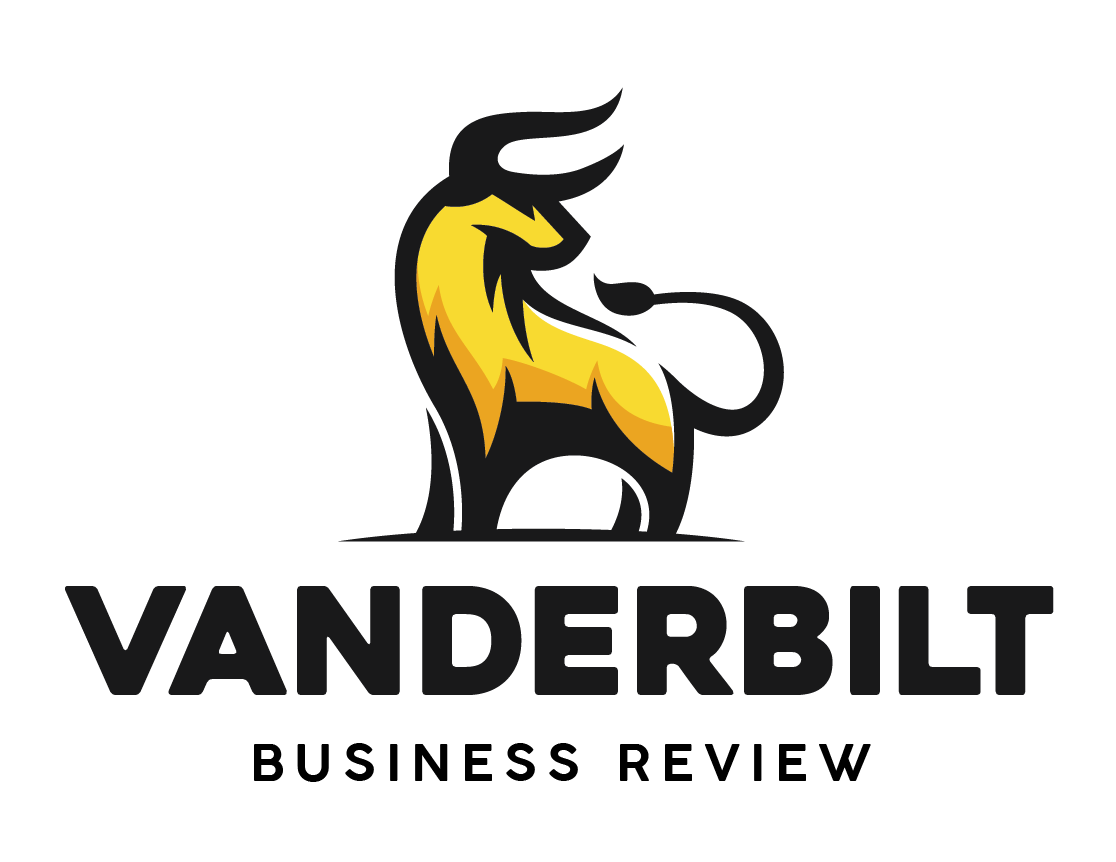By: Dave Ghosh

Dear Vanderbilt,
My name is Dave Ghosh, and I have served as the Division Head and Editor in Chief of the Vanderbilt Business Review (VBR) since its inception nearly three years ago. Yesterday, I stepped down from my position, ending what was an unbelievable run and opening the door for what I know will be a remarkable second phase for the journal.
As I reflect on my time with VBR, I find myself experiencing mixed emotions. On one hand, I am one step closer to starting a post-college adulthood that surely will be exhilarating. At the same time, I am letting go of an organization that made my time at Vanderbilt special. An organization that defined my time at Vanderbilt.
My purpose in writing this letter is not to narrate my college experience for the sake of pouring out my emotions. Rather, I hope to provide a narrow glimpse into the journey I took to start VBR and the leadership lessons I learned along the way.
Lesson 1: Failure is Imminent, And You Have to Experience It to Truly Achieve Anything.
The idea to start VBR came one night in early 2019 during a discussion with my friend about the imperfections of a now-defunct business publication. It was struggling to stay afloat and, as hopeful first year students who were interested in writing about business topics, we couldn’t understand why a group of motivated, intelligent Vanderbilt students were having such a hard time. My friend and I joked that “someone should start the Vanderbilt Business Review,” a new business journal that would follow a completely different model. Although we were using humor to lighten our disappointing moods, it became apparent after the conversation that it was not such a bad idea. Within two months, we convinced three more students to join us as board members, had our proposal approved by Vanderbilt Student Communications’ Board of Directors, and had a game plan to officially start in Fall 2019.
I was ecstatic. As a STEM major who enjoyed analyzing literature and writing, I felt that this was my chance to make a difference on campus and provide likeminded individuals with opportunities they would not otherwise have had. During the summer, I spent all my free time designing the website (which sucked, by the way) and creating a month-by-month plan. Although I did not expect the journal to rival the Harvard Business Review (immediately), I felt that with hard work, we would at least reach the Nashville community by the time I graduated from college. At first, it seemed like I was right.
During the university’s organization fair, more than 60 students expressed interested in joining VBR and after the recruitment process, we ended up with 20 members in total. We held our first meeting a few weeks later, and everyone showed up. But that meeting would mark the end of our “honeymoon” phase and my feelings of optimism.
As we presented our goals and expectations to the members, I noticed that most of them looked confused and skeptical. During our Q&A session, they asked many questions about the feasibility of our org model and how we would hold our members accountable. Oddly enough, the questions were not the biggest red flags for me; it was the fact that the other board members seemed extremely underconfident in answering their questions, often providing information that dug us in a deeper hole.
It was clear that I had done something wrong, but my passion to combine my interests in STEM, literature, and business was not going to deter me. A day later, I sent out an email to everyone with a Google Sheets file so they could sign up for articles. Hours passed by, and no one signed up. Days passed by, and no one signed up. After six days, I sent a reminder email to the members and told them we would be having our weekly meeting as planned. Still, the file was blank and worst of all, only one general member and one board member showed up to our meeting. Within weeks, VBR had lost all its members, and I was not motivated to hold board meetings to try and fix this. The semester was a failure.
I tried to launch the journal again in the spring of 2020, but that was short-lived as I found myself spending the first two months in and out of hospitals with an extremely serious case of appendicitis, and the onset of the pandemic sent us home immediately afterwards. At the time, I felt debilitated and didn’t know if I would ever find my footing at Vanderbilt. As it would turn out, I was wrong again.
Lesson 2: Passion and a Good Support System are the Only Things That Can Cure Failure.
Although I felt demoralized, I somehow convinced myself I could fix VBR by switching from a website to a paper-based format. I contacted our adviser, Paige Clancy, in April 2020 to discuss the plans, and we had a long conversation about how a desperation move such as this probably was not going to work. Instead, she gave me two pieces of advice that I will hold with me forever:
- My priority should be to populate the website. It didn’t matter if the articles were perfect or if all the articles were written by me. If I wanted my vision to succeed, I had to focus on what I could control.
- To make the board members feel more included, I needed to eliminate the hierarchical feeling. Even if I led all the meetings and coordinated most things, everyone should feel like they are Editors in Chief. In essence, this meant that I had to focus less on taking credit for VBR’s success and focus more on vocally appreciating everyone’s contributions.
Paige convinced me to give VBR another chance in Fall 2020, and that conversation was all I needed to right the ship (*cue the Michael Jordan gif*). The summer after my sophomore year, I contacted a few of the board members from the previous year and persuaded them to give VBR one final shot. We brought in another student to serve as an editor, and that resulted in us finding someone to manage our website. By August 2020, we all helped populate a renovated website and were ready for the new school year.
The org fair was on Zoom that year, which prevented us from truly bonding with prospective members. Still, we were able to recruit six writers to buy into our mission, and they responded accordingly. While I credit their passion and love for writing as the core reasons why we succeeded in Fall 2020, I also think that our board’s contagious confidence – which we didn’t have the previous year – contributed immensely as well.
During the 2020-21 school year, we went from zero articles published a month to four in the fall and nine in the spring. We went from one member (me) to six in the fall and 15 in the spring. The summer after, we began producing and publishing podcasts. In Fall 2021, we increased our member count to 34, and our monthly article count grew as well.
Lesson 3: The More You Care About the Little Things, the Less You Will Achieve.
Although I make it seem like we were a huge success over the past two years, there were still a lot of bumps along the road that I overlook because they do not matter in the grand scheme of things. There were times where deadlines were missed, ideas were not effectively communicated, class workloads slowed things down, or meetings didn’t go well for various reasons. Our retention rate from the 2020-21 school year wasn’t the greatest, either. If I cared about those things, VBR would have been in the same spot it was in when we first started. In fact, I think that it was a huge reason why I first failed. I cared too much about the little things. Instead of trying to build something great with the two members who showed up to our second meeting, I was obsessed with how empty the room was. Instead of hyping our editors and writers up, I focused on what they weren’t doing.
When you work with a team, things will not always work out. I’m sure all of you know this from group projects. But when you work with a team because of your passions instead of a grade, it is easy to forget that. I still think about what I could have done to make VBR better, but at the end of the day, I have to live with the results (which are pretty darn good, in my opinion).
Lesson 4: In Order to Grow, Your Vision and Role Will Be Altered, and You Have to Accept It.
As I mentioned earlier, I thought that by the time I graduated from college, VBR would extend to the Nashville community. Even though I still have a few months left, it’s safe to say that I will not accomplish that goal. And I am completely fine with that. I was naïve when I started the journal. I overshot my expectations for what we could achieve because I was thinking too far into the future, and I didn’t anticipate failure. I had to change my mindset on that end. I went from building a website to thinking that a paper-based format would work, before ultimately settling on the website again. Altering my vision and trajectory wasn’t always the easiest pill to swallow, especially when you expect greater things, but it is part of the growth mindset.
One area where my vision drastically changed was in the role I would serve as part of this journal. On the surface, it seems apparent that my role as Editor in Chief would be to direct the organization. However, when I started VBR, I wanted to satisfy my interests in STEM and writing. Even if I led the meetings, I didn’t think that I had to give up writing. And from Summer 2020 to the start of the Fall 2020 semester, I was managing both sides of the coin. However, as VBR started expanding, I found myself not writing as much. I spent most of my time writing emails, meeting with Paige, leading meetings with the editorial board, leading general meetings, planning our semesterly recruitments, editing articles, and researching the art of journalism. This is the first time I am publishing my own work on this website in more than a year. This wasn’t the job I signed up for, but I enjoyed every minute of it because my constantly altering vision was coming to fruition.
Lesson 5: There Will Come a Time When You Have to Put Your Ego Aside and Let Go.
One question that still lingers for me is, “why am I letting go of VBR in February?” After all, we just started the spring semester a few weeks ago.
The most obvious answer is I want to take the time to enjoy my final semester on campus with my friends and letting go of this job and this journal opens a lot of time to make memories that will last a lifetime. However, VBR has always been a passion project, and I could always make time for it if I wanted to.
The more complicated answer is this is the first time the journal will transition to a new leadership team, and I want to make sure everything goes smoothly. I have said this once and I will say it again: I always felt that VBR was my chance to make a difference on campus and provide likeminded individuals with opportunities they would have otherwise not had. While I am still on campus, I want to be a resource to the incoming editorial board and help them navigate unchartered waters. I want VBR to be a journal that Vanderbilt students talk about decades from now.
With that, I bid farewell to the Vanderbilt Business Review. Even though my experiences were specific to the journal, I hope that you can see how the leadership lessons I learned can be applied to almost any situation and how your path is not defined by your initial expectations.
I have seen some of the lessons listed in this article play out in real time. While I am a Computer Science major, I discovered I had very little interest in being an individual contributor for a large company. When I walked into my senior year in August, I thought that I would be limited by the type of jobs I could apply to. And I was. But somehow, I ended up finding the perfect opportunity in management consulting. Like the path I took in starting VBR, this career was not something I could have expected 😊
Anchor Down,
Dave Ghosh



